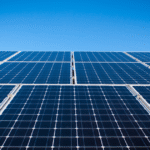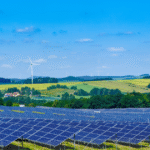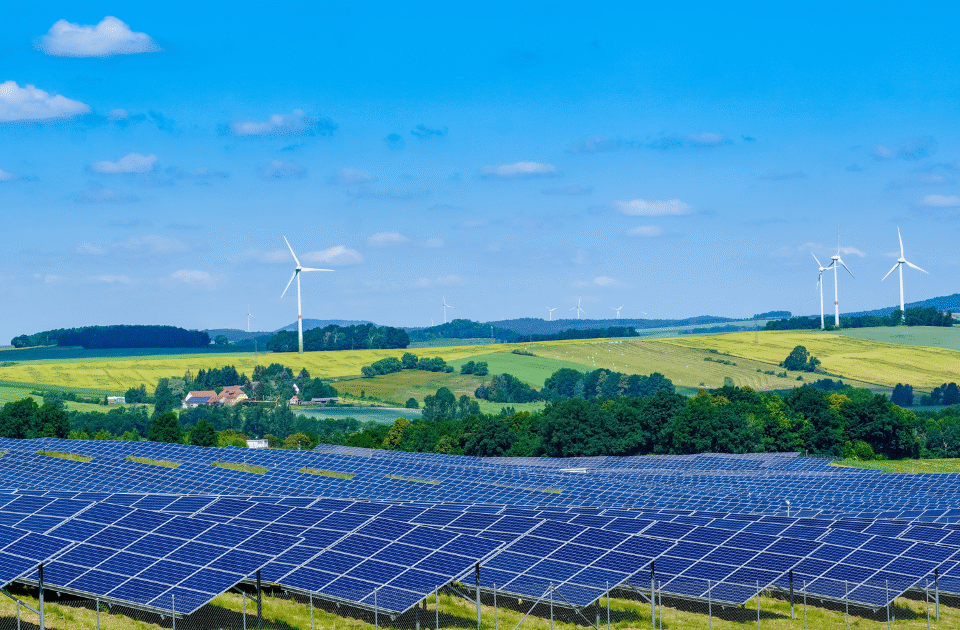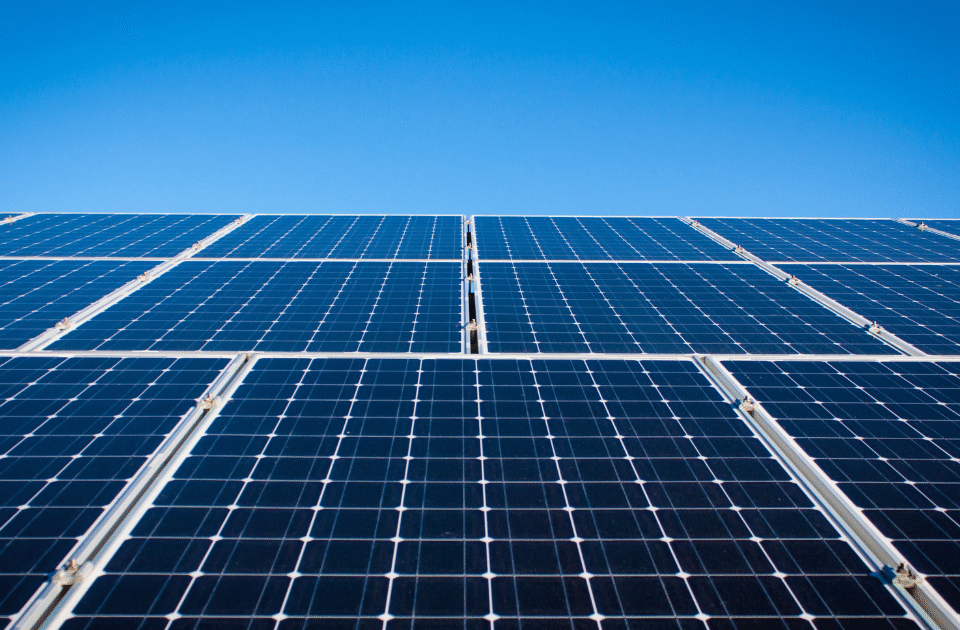What is Solar Energy?
Solar energy is the radiant light and heat from the sun that is captured and converted into usable forms of energy. For billions of years, the sun has been Earth’s primary energy source, essential for life processes like photosynthesis. Today, we harness this abundant, clean, and renewable resource through various technologies, most notably to generate solar power – electricity from the sun. This makes it a powerful and sustainable alternative to traditional fossil fuels, leading us towards a cleaner, greener future.
How Does Solar Energy Work?
The most common method for generating solar power involves photovoltaic (PV) systems, often seen as rooftop solar installations. These systems convert sunlight directly into electricity and typically comprise several key components:
Photovoltaic (PV) Panels: These panels, made of semiconductor materials, absorb sunlight and convert it into direct current (DC) electricity.
Inverter: Since most homes and businesses use alternating current (AC) electricity, an inverter is essential. It converts the DC electricity from the solar panels into usable AC electricity for your appliances or for feeding back into the electrical grid.
Mounting Systems: These robust frames securely attach the solar panels to your roof or a ground-mounted structure, optimizing their angle for maximum sunlight exposure.
Battery Storage System: For enhanced energy independence, many solar setups include a battery storage system. This allows you to store excess solar power generated during the day for use at night or during periods of low sunlight, maximizing your self-consumption.
Smart Monitoring: Modern solar installations often integrate smart monitoring systems. These allow you to track your system’s performance, energy production, and consumption in real-time via an app, ensuring efficiency and helping you optimize energy usage.
Solar power systems come in various configurations:
Grid-Tied Systems: The most popular choice, these systems are connected to the main electrical grid. Excess electricity generated can be fed back into the grid, potentially earning you credits or payments, contributing to a lower electricity bill.
Off-Grid Systems: These systems operate independently of the utility grid, relying heavily on battery storage to provide continuous power. They are ideal for remote locations.
Hybrid Systems: Combining aspects of both grid-tied and off-grid setups, hybrid systems offer grid connection with the added security of battery backup.
Beyond electricity, solar energy can also be used for:
Water Heating: Solar thermal systems use sunlight to directly heat water for domestic or commercial use.
Space Heating and Cooling: Passive solar design and active solar heating systems can warm or cool buildings.
Drying and Sterilization: Solar dryers are used in agriculture, and solar energy can sterilize water or medical equipment.
The Incredible Benefits of Solar Energy: Is Solar Power a Good Investment?
Yes, solar power is a good investment for numerous reasons, offering a wealth of advantages for both your finances and the environment. These benefits make embracing solar energy a wise decision:
- Economic Savings: Installing solar panels significantly reduces or even eliminates your monthly electricity bills. By generating your own power, you gain independence from rising utility costs. Grid-tied systems can also allow you to sell surplus electricity back to the grid, creating an additional revenue stream.
- Environmental Impact: As a clean and renewable energy source, solar power produces no greenhouse gas emissions, air pollutants, or water waste during operation. This directly combats climate change, reduces your carbon footprint, and promotes sustainable development.
- Energy Independence & Security: Generating your own electricity lessens your reliance on a centralized power grid, increasing your energy security. You become less vulnerable to power outages and fluctuating energy prices.
- Long Lifespan: Solar power systems are built to last, typically operating efficiently for 25-30 years, with some components lasting up to 50 years. This ensures long-term returns on your initial investment.
- Increased Property Value: Homes equipped with solar panel systems are often more attractive to buyers and can see a significant increase in property value.
Common Questions About Solar Power:
What is Solar Power?
Solar power refers specifically to electricity generated from sunlight using photovoltaic (PV) technology. It’s the most common application of solar energy for homes and businesses.
How Much Power Does a 5kW Solar System Produce?
A 5-kilowatt (kW) rooftop solar system is a popular size for many homes. On average, a 5kW solar system can produce approximately 20-25 kilowatt-hours (kWh) of electricity per day, depending on factors like your location, the amount of direct sunlight received, panel efficiency, and system orientation. Annually, this could amount to 7,300-9,125 kWh.
How Many Solar Panels Are Needed to Power a Home?
The number of solar panels required to power an average home varies widely based on your household’s energy consumption, the wattage of the panels, and the amount of sunlight your roof receives. Most homeowners typically need between 15 to 25 solar panels (assuming 300-400W panels) to offset a significant portion of their electricity needs. A detailed energy assessment can provide an exact number for your specific situation.
Do Solar Panels Work During a Power Outage?
Standard grid-tied rooftop solar systems are designed to automatically shut down during a power outage. This safety feature, known as “anti-islanding,” prevents your system from sending electricity back to the grid, which could endanger utility workers repairing the lines. However, if your solar installation includes a battery storage system or a specialized inverter with “sunlight backup” or “islanding” capabilities, your home can continue to draw power from the panels and/or batteries during an outage.
How to Use a Solar Power Bank?
A solar power bank is a portable device primarily designed for charging small electronic gadgets like smartphones, tablets, or small cameras. To use it:
Charge the Power Bank: Place the integrated solar panels in direct sunlight to charge the internal battery. Many power banks also have a USB input for faster charging from a wall outlet.
Charge Your Device: Once the power bank is charged, connect your electronic device to its USB output port using the appropriate charging cable. The power bank will then transfer its stored energy to your device.
Remember, solar power banks charge slowly via solar panels and are best for emergencies or topping up small devices, not for powering entire homes.
Embrace Solar Energy: Your Path to a Brighter Future
In summary, from understanding what is solar energy to exploring its practical applications like rooftop solar and its significant benefit of solar energy, it’s clear that this renewable resource is a powerful solution for a sustainable future.
Ready to harness the power of the sun and enjoy the benefits of solar energy, including our advanced battery storage system and smart monitoring solutions for your home or business?
Contact us today to learn more about our solar panel installation services and get a personalized quote!





